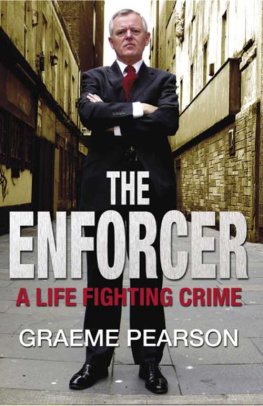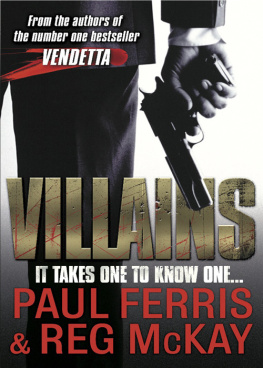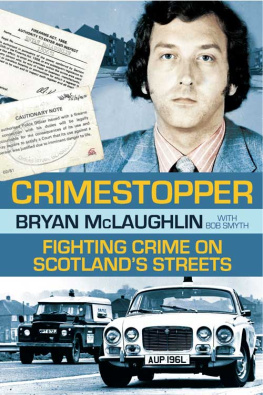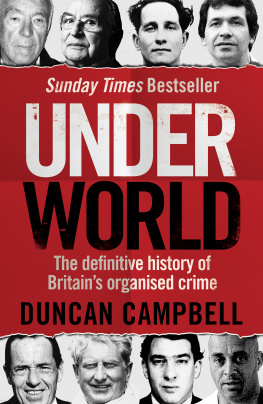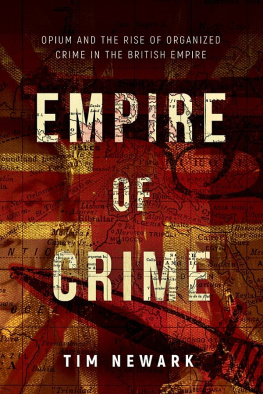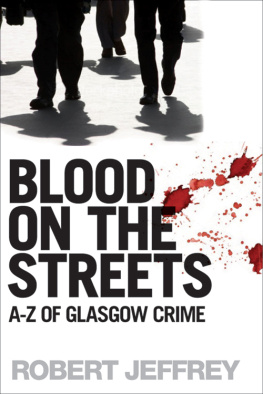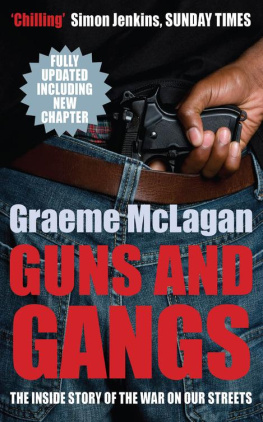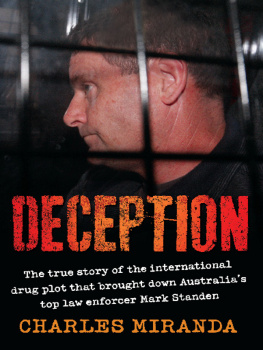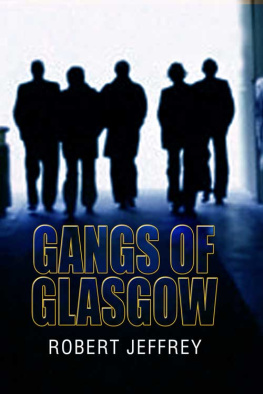
TO MY MOTHER AND FATHER
Contents
In thirty-eight years service as a police officer, I enjoyed a privileged insight into the lives of thousands of people. I saw the best and worst that people could do to one another while attempting to resolve differences and solve crimes.
I closed my police career as Director General of the Scottish Crime and Drug Enforcement Agency, which gave me the opportunity to tackle criminals who seek to control organised crime in our country. This job provided my biggest challenges and also some of the darkest moments of my career.
This book is a frank account of the highs and lows of my experiences. I hope that it will inspire youngsters to become police officers and others to wonder whether they should perhaps have joined the service.
I have mentioned only a few police officers by name and this is to protect the privacy of others. However, I am happy to acknowledge that I would have achieved very little without the men and women who taught and worked alongside me. I look back on my police career with immense fondness and gratitude.
I shared the worst moments affecting many ordinary people, often in dreadful circumstances. Sometimes, even prisoners trusted me with their biggest secrets and disappointments. My recollections may surprise you but I also hope that they comfort you.
During my years in the service, I met a number of evil men and convicted them against the odds. Nevertheless, I am convinced that the majority of those in prison are not evil by nature but lack the ability to cope with the pressures of modern day life. I have learned that we need to ensure that those who seek to profit from criminality are stripped of all their assets; this would ensure they could no longer be role models. We need to take steps to keep our young people away from a life of crime.
Everything in this book really happened to me. I make no apologies for my views or the way they are reported. Others may have different recollections, but I am sure they will forgive me as I am confident the essential details are beyond challenge.
Graeme Pearson
Glasgow, 2008
1
It was a typically miserable cold and wet February night back in 1980 and at times like these the night shift could be pretty challenging. The previous day, blizzards had left Scotland cut off but at least the night had now turned crisp and dry. As usual, I left my house not knowing what would happen in the next few hours but for me that was always one of the really great things about being a police officer.
That night, as Id often done before, I left home a little early to visit an informant before my shift started. Informants, or touts as they are known in Glasgow parlance, were hard to develop so it was essential to spend time keeping them onside. I often met touts at their homes, a trick I had picked up from older detectives, but Id always park a fair distance away just to make sure I wasnt seen. I would then cut through the backcourts to make sure no one was following me.
These visits gave me the opportunity to develop a real bond with an informant and also showed the tout how we could work together. Touts in my experience felt far more relaxed in their own environment. They also opened up more easily when it came to talking business. Often on such visits I would glean some valuable information about an ongoing crime or be told something that was about to happen.
On this terrible night, I remember being greeted as usual like an old friend and given a cup of tea and some toast as we sat down to discuss the Glasgow criminal underworld. Our conversation was suddenly halted by the headlines on the nine oclock news. Three people had been viciously murdered at Gartnavel Hospital in Glasgow. We both sat in silence, hanging on every word of the awful news.
The news report said that around 5pm that evening Joyce Harkins, a 25-year-old clerical assistant at Gartnavel Hospital, having picked up her four-year-old son, James, from the hospital crche, had then met up with her brother, Peter Flynn, before heading home after her days work. Then, outside the hospital, a man came up to Joyce and, within minutes, the three of them had been viciously stabbed to death for no apparent reason.
Even by Glasgows standards, these murders were extreme in a matter of moments three lives had been needlessly and senselessly taken.
As the news report finished, the tout said, Youll be looking for her husband or man. As I nodded in agreement, it was one of many times that I realised how alike some criminals and police think. We have a special understanding of life that comes from getting under the skin and being so close to criminality. Little did I know, just a few hours later, how close up and personal I would get to this triple killer.
By 11pm, I was on duty as the night shift detective sergeant at Temple police office, then the headquarters of the Serious Crime Squad. Gartnavel Hospital was barely a mile away from the office but, at the handover from the late shift, we were all told that the divisions detectives were out in Thornliebank following a definite line of enquiry. So, I presumed the killer would soon be in custody.
The four of us on duty that night split up into two groups as we left the office. Along with a fellow detective or neighbour as we officers call our partners I was soon driving towards the city centre when an urgent message on the police car radio told us to head for the tiny Thornliebank police sub-office as quickly as possible. I thought I was probably needed to take a voluntary statement from the murder accused, something which, at that time in my career, I had done on a number of occasions.
As I pulled up outside the tiny police office, it was obvious something was seriously amiss. Firearms officers were dashing around the street and the bosses were deep in a meeting which I was invited to join. In the room were the two officers running the triple murder enquiry, Detective Superintendent Alex Michie and Detective Chief Inspector Charlie Craig, both deep in conversation. I knew them well as I had worked for them in various police offices across the city.
They told an unbelievably bizarre and horrific tale. John Harkins, Joyces estranged husband, had turned up at the home of one of his former work colleagues. Harkins then told this man that he had killed his own wife, son and brother-in-law. At first, the family did not believe him but they could tell something was seriously wrong by his demeanour. They only believed him when they heard the television news reporting the triple killing at Gartnavel Hospital.
Harkins colleague, Raymond Murray, didnt know what to do but left the house on the pretext of buying a carry-out and promised to return with it as quickly as possible. Once outside the house, Raymond had met a friend, Frank McIlree, who urged him to get in touch with the police as quickly as possible.
So, by the time I arrived in Thornliebank, Harkins, a mortuary technician, was in Raymond Murrays home in nearby Locheil Road with Murrays wife and three children. Harkins was obviously unstable, so we had no way of gauging how he would respond when the police turned up.
By now it was after midnight and the house was surrounded with armed officers, although no one had yet made an attempt to contact or approach the killer or the wife inside. By now, Raymond Murray was understandably very agitated and struggling to cope with the pressure. He was beside himself with worry about what could be happening inside his home.
Raymond barely knew Harkins, whom he had worked alongside as a mortuary assistant at the Royal Infirmary. From his work, Raymond was only too aware of the terrible impact violence had in Glasgow and he was terrified for his family left inside a house with a man who that very afternoon had so viciously slashed three innocent people to death.
Next page
